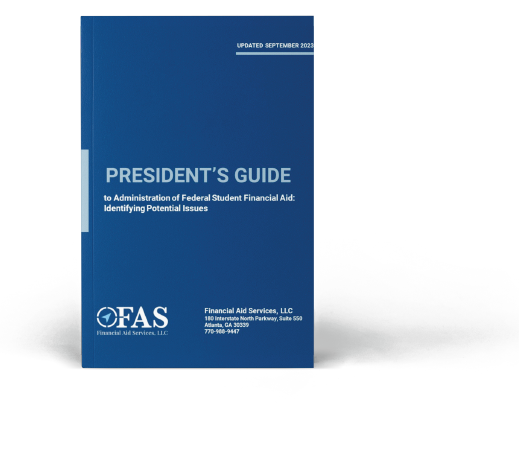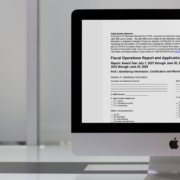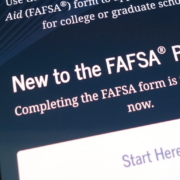Saying “Yes” to Becoming a Director of Financial Aid
By: Heidi Goldsworthy, FAS Senior Consultant
Saying “yes” to becoming a Director of Financial Aid is a big step. Preparation is key.
Taking the opportunity to say “Yes” to moving up to a leadership position within Financial Aid can be both exciting and unnerving. What are the questions you should ask as you consider becoming a director? What does a management position as a director really entail? I have heard many Associate or Assistant Directors state that the responsibility as a director is too big, unsupported by administrators, and a major disruption to one’s personal life. I have also heard individuals state that becoming a Director of Financial Aid has been the best challenge ever. Personally, I wouldn’t change the Director opportunities that I have had over the 40 years in this profession. The opportunity to use my knowledge, critical thinking, and personnel management skills has had ups and downs but I wouldn’t change the director experiences of my career.
So, what experience or information does it require when becoming a director? Here’s a checklist to consider when navigating this important career decision:
1. Self-Reflection and Preparation:
- Have you thoroughly considered the implications of taking on a leadership role in financial aid?
- Are you emotionally and professionally prepared for the challenges and responsibilities that come with the position?
2. Institutional Research:
- Review the institution’s mission, strategic vision, and organizational structure.
- Assess whether you align with the institution’s values and goals.
- Analyze the institution’s enrollment data, IPEDS reports, and cohort default rates to understand the financial aid landscape.
3. Questions for Institutional Leaders:
- Prepare a list of questions to ask other leaders within the institution, such as:
- What is the institution’s commitment to financial aid management and support?
- How does the institution view the role of the Director of Financial Aid in achieving its goals?
- What resources and support will be available to you in this role?
4. Mentorship and Networking:
- Seek out a mentor who is currently a Director of Financial Aid to gain insights and guidance.
- Connect with professionals who have experienced the transition from assistant or associate director to director.
5. Opportunities for Advancement at Current Institution:
- If you plan to stay at your current institution, work with your current director to explore opportunities for taking on management projects that will provide valuable experience.
- Express your desire to advance and discuss your career goals with your current supervisor.
6. Continuous Learning:
- Engage in ongoing training opportunities to expand your knowledge and skills.
- Read relevant materials to stay updated on industry trends, regulations, and best practices.
- Build a support network of colleagues and peers in the field.
7. Exploring the Possibility:
- Take the initiative to apply or interview for Director of Financial Aid positions when you feel ready.
- Consider the potential impact on your personal life and work-life balance.
8. Making the Decision:
- Weigh the pros and cons based on the information you’ve gathered.
- Evaluate your long-term career goals and aspirations.
- Trust your knowledge, critical thinking, and personnel management skills to guide your decision.
9. Saying “Yes”:
- Once you’ve made an informed decision, take the step forward toward leadership and embrace the opportunity.
- Be open to the possibility of a rewarding and challenging career as a Director of Financial Aid.
10. Adaptability and Growth:
- Understand that the role may have its ups and downs, but be committed to personal and professional growth.
- Embrace the challenges as opportunities for learning and development.
Remember, saying “yes” to becoming a Director of Financial Aid is a significant career move, and the decision should not be taken lightly. Use this checklist as a guide to ensure you are well-prepared and equipped to excel in this role. The journey may have its challenges, but it can also be one of the most rewarding experiences of your professional life. Embrace the opportunity, take that step forward, and say “yes” to the directorship. Your future in financial aid leadership awaits!





 adobestock
adobestock



 William David Ford (August 6, 1927 – August 14, 2004)
William David Ford (August 6, 1927 – August 14, 2004)  Claiborne Pell (November 22, 1918 – January 1, 2009)
Claiborne Pell (November 22, 1918 – January 1, 2009) Arthur O. Eve (March 23, 1933 – Present)
Arthur O. Eve (March 23, 1933 – Present)
